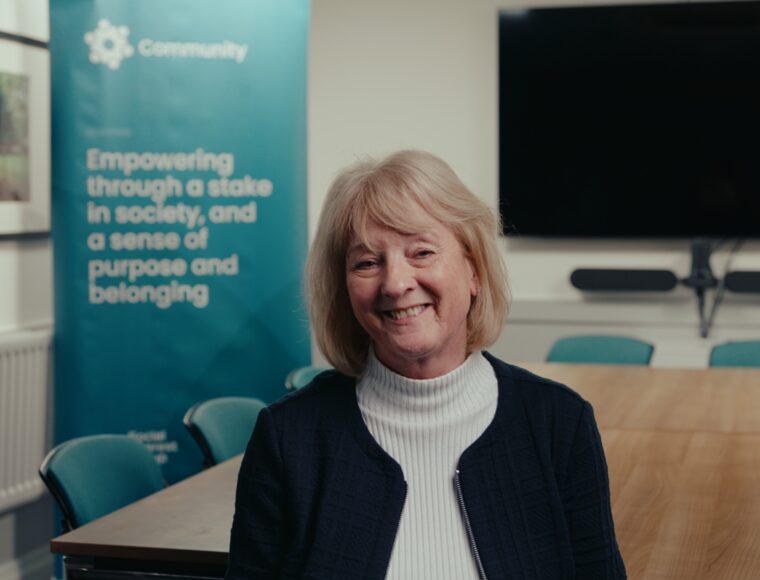


Meet Cathy Kane
Our interim CEO talks about her first 100 Days at SIG
Read moreSafe Ground first met Brendon when it was suggested he might be interested in participating in a Man Up programme we ran at HMP Peterborough. Man Up is a group work programme designed to support young and adult men to consider the pressures and expectations of being a ‘man’, many of which can exacerbate harmful behaviours. The programme takes place over three consecutive days, culminating in a performance to an invited audience of staff members.
Group work is always complex, but Man Up participants explore emotive themes, including Identity, Relationships and unmet needs, which invariably make the process all the more challenging. Sometimes, the process can leave participants feeling exposed, and whilst this is an integral part of the experience, the level of commitment taking part requires can’t be understated.
Brendon is a young person who is autistic. He had a job as an orderly (a cleaner). However, he kept himself to himself as much as possible, avoided engaging in group conversations and was highly apologetic for anything he felt he’d done wrong. Brendon’s first experience of secure settings was at age 11. Before his current custodial sentence, he spent much of his adolescence in secure mental-health settings, and his familial relationships and support network were fraught. We understood that when Brendon felt overwhelmed or uncomfortable, he would react in extreme, often violent, ways that risked his and others’ safety.
When we met the group to conduct pre-programme interviews, Brendon was apprehensive about his ability to participate and initially decided that the programme wasn’t for him. He politely excused himself from the introductory session and left the room. However, with encouragement from Safe Ground and his Key Worker, he decided to give it a go. Ahead of the group, we received additional communication from the prison SEND department, with a list of diagnoses attributed to Brendon and a note that said a ‘one-page profile’ was also available. We were warned that he might become anxious and need to leave the room and have neurodiversity needs that would be detrimental to his positive engagement in the group. Staff members expected him to act up or play the ‘class clown’ as soon as he felt uncomfortable.
Over three days, staff members (all with the best intent) asked us about Brendon’s participation or offered unsolicited advice on his ‘behaviour’. They made assumptions that Brendon was messing about and suggested it would be a success if he were ‘even just to be a tree’ in the final performance. We held Brendon to higher expectations than this because we know that our participants can do far more than they might often be given credit for. In turn, Brendon far exceeded our expectations. He was thoughtful and considered in his reflections, his confidence grew, and despite warnings from staff, he didn’t leave the room once over the three days, nor act the class clown when he felt uncomfortable. And he was by no means the most challenging participant. The rest of the group supported him when he needed time to form his ideas fully, and Brendon showed great patience, especially when others were vying for attention. He showed respect and care, listening carefully to others’ contributions and offering insightful responses. When it came to preparing the final performance, Brendon played an integral role.
The group devised and performed an extended role-play based on characters they had created to an audience of 22 staff members, including the Deputy Director of the prison, officers, OMU, Governors and other SMT members. The story follows two young people caught up in the Criminal Legal System.
Brendon accepted a particularly challenging role, as his character was not immediately relatable to him and his personal experience like most other roles were. Brendon showed bravery in his commitment to his performance and nominated himself to close the performance with a speech he’d worked on in his own time. Brendon kindly allowed us to have the original copy of his speech. When we asked if he was sure, he told us that he was; he’d ‘remember it in his head’: “I have learned to understand about myself and learn that anger … is not always the right way to go in life. Sometimes, it’s best to move yourself and think how far I have come before you go into a bad frame of mind. Before I done this course, I was having to deal with my mental health and my trauma, and this has helped understand talking is the right way to go.
People used to tell me that going the wrong way in life can affect you and others. What this course has done for me is change my mindset. Change into a man I want to become. I would like to say thank you for understanding me. You have taught me a lot. This will help me learn about myself. Thank you.”
This was the first group Brendon engaged in prison, which was a significant personal achievement. The goal of Safe Ground’s methodology and how we approach our work is to make room for participants to be themselves. Brendon embraced this courageously and, in the process, found a way to understand himself. That is what resilience is. And in a prison environment, where the easier option for everybody is not even to try, that is a huge, huge achievement. We felt incredibly proud of Brendon, but the most outstanding achievement was that, despite everything, Brendon felt proud of himself.

